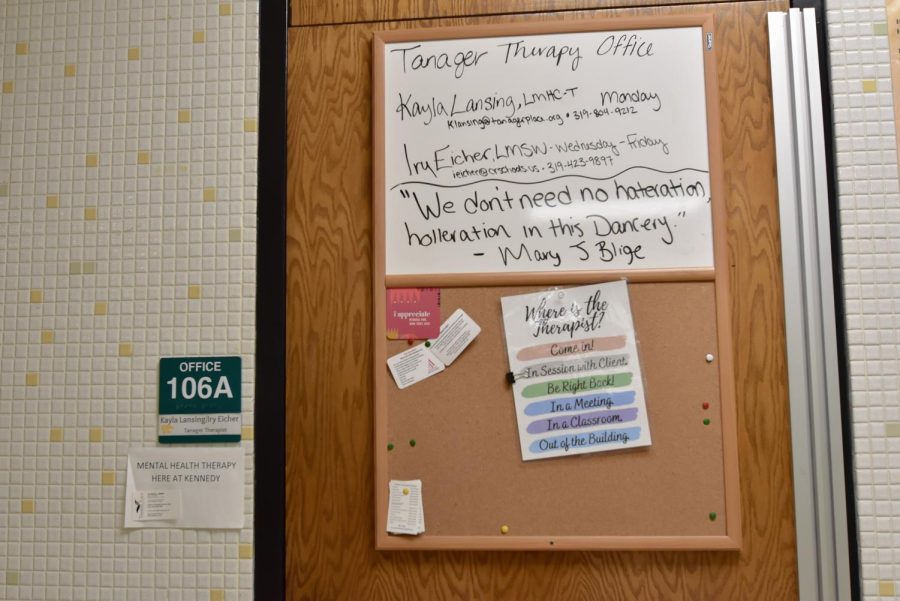Tanager Therapists Here to Help Students
Tanager Place offers outpatient therapy at Kennedy High School.
February 18, 2022
One in five teens suffer from a mental disorder, but Kennedy has resources to take action against this epidemic. Contrary to popular belief, the no-cost therapy offered at Kennedy is run not by the school counselors but by Tanager Place. Through Tanager Place, thousands of teenagers are aided by the team of therapists working both at the office and at Kennedy.
Tanager therapy can help those who are struggling by using strategies tailored to individual needs. Sessions are available on a weekly or bi-weekly basis, depending on the client’s preference.
The first step in enrolling to the program is to be referred. This can be done by request of Kennedy Principal Jason Kline, a teacher, counselor or yourself by emailing Tanager Place. After referral, Kayla Lansing or Iry Eicher, the therapists at Kennedy, provide a consent form to be signed by a parent or guardian giving permission to begin the program.
Therapy sessions can be either at Kennedy during class or at the Tanager Place location on 5th Ave SE. The Tanager Place location has a variety of therapists and more time slots.
A new client’s first therapy session begins by asking about social history and background knowledge. In following therapy sessions, therapists get to know the person before facing the problem. Tanager therapy does their best to make their clients feel comfortable.
“I think that building rapport is essential to the therapeutic process. No one’s expected to just walk in and tell me their trauma right away,” said Eicher. “You want to do that with someone you’re comfortable with.”
Tanager therapists bond with their clients through activities such as playing games, drawing and solving puzzles. After getting to know the client, behavioral, metacognition, tolerance and mindfulness techniques can be provided, depending on the client.
Freshman Maggie Goldberg says that therapy has helped her adjust to high school. To help adjust from online school, she received recommendations from close friends. Through these friends, Goldberg has found a therapist who fits her needs.
“I can always feel like I can talk without any judgment,” Goldberg says. “They’re specialized in knowing how teenagers feel, like nothing you say is a wrong answer, and that feels nice.”
Goldberg says she now understands what she’s feeling and why. This understanding helps her view a situation from an outside perspective to make the best decision through a new perspective and change in her life to improve her mental health.
After a year of treatment, Goldberg recommends therapy and believes that everyone should experience therapy once in their life.
“It’s a great opportunity to even witness or experience. It helps some more than others, but it is really nice to be able to open up and get what’s wrong out there instead of bottling it in.”




























